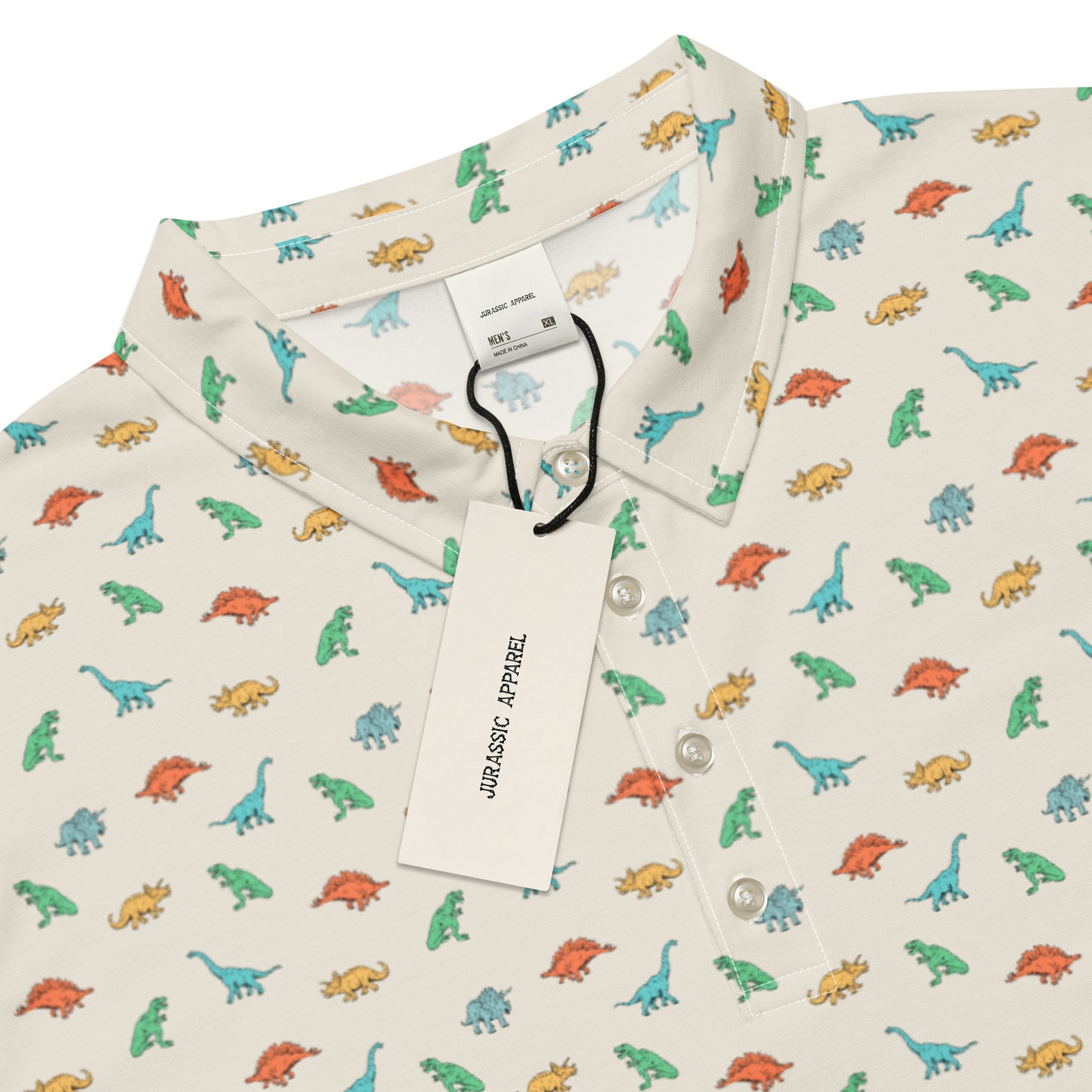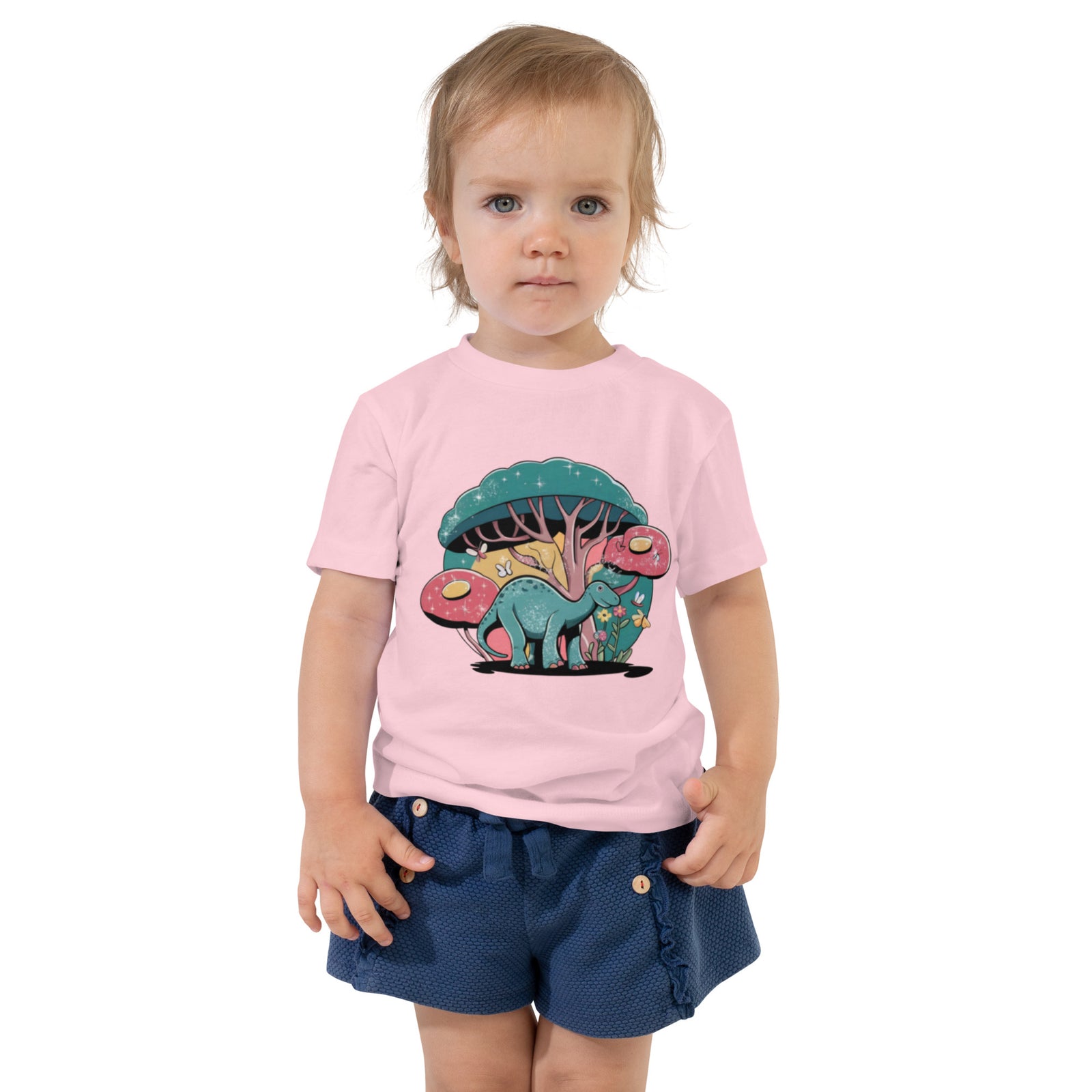Free Shipping On Orders over $75
Free Shipping On Orders over $75
Women's
Men's
Kids
Baby/Toddler
Accessories
Anchisaurus: The Gentle Herbivore of the Jurassic Era
July 24, 2024 2 min read

(AI Interpretation)
Discovering Anchisaurus: The Gentle Giant of the Jurassic
Dinosaur Facts:
- Dinosaur Type: Sauropodomorph
- Period: Early to Late Jurassic (approximately 200 to 145 million years ago)
- Diet: Herbivore
- Length: About 23 feet (7 meters)
- Height: Approximately 10 feet (3 meters) at the hips
- Weight: Roughly 1 ton (about 900 kg)
- Notable Features: Long neck, robust body, and large, lumbering legs
Anchisaurus for Kids
Meet Anchisaurus!
Anchisaurus was a massive dinosaur that lived during the Jurassic period. It was a type of sauropodomorph, which means it was related to the long-necked giants like Brachiosaurus and Apatosaurus!
What did Anchisaurus look like?
Anchisaurus had a long neck and a long tail. It walked on four sturdy legs, which helped support its large body. It likely had a small head compared to its huge body, and its teeth were designed for chewing tough plants.
What did Anchisaurus eat?
This dinosaur was a herbivore, which means it only ate plants. It grazed on leaves and ferns in its environment, using its long neck to reach high vegetation as well as lower plants.
In-Depth Look at the Anchisaurus
Anatomy and Physical Features
Anchisaurus possessed a sturdy skeletal structure characterized by a long neck and tail, providing balance to its massive body. Its limbs were robust, enabling it to support its weight as it roamed the forest floor in search of food. The distinctive characteristics of its teeth suggest it was well-adapted to herbivorous feeding.
Behavior and Habitat
Anchisaurus lived in lush, green environments typical of the Jurassic, often near rivers or lakes where ferns and conifers thrived. It was likely a social dinosaur, preferring to roam in groups to enhance protection against predators.
Scientific Discovery and Research
Discovered in the early 19th century, Anchisaurus fossils have been primarily found in the northeastern United States. Its significance in the evolutionary timeline is underscored by ongoing research, revealing more about the diversity of sauropodomorph dinosaurs. For more, check sources like the American Museum of Natural History and the University of California Museum of Paleontology.
Social Behavior and Hunting Techniques
While Anchisaurus was an herbivore and not a hunter, its social behavior played a crucial role in its survival. By moving in herds, it could better defend itself against predators, allowing individuals to alert one another in case of danger.
Anchisaurus in Popular Culture
Anchisaurus may not be as famous as the T. rex, but it has made appearances in various children’s books and educational materials aimed at introducing young learners to prehistoric creatures. Its gentle, herbivorous nature appeals to audiences and helps illustrate a peaceful dinosaur's life.
Ongoing Research and Discoveries
As paleontologists continue to unearth and study fossils, debates about what constitutes true Anchisaurus compared to its relatives keep the research vibrant. New discoveries add layers of complexity to our understanding of its morphology and behavior, indicating a diverse lineage of sauropodomorphs. Refer to resources like Science Daily for the latest in paleontological discoveries.
Conclusion
Anchisaurus stands as a significant chapter in the story of dinosaurs. Its blend of size, gentle feeding habits, and herd behavior illustrates the wonders of prehistoric life. Further studies will undoubtedly continue to unravel more about this fascinating creature and its environment.





